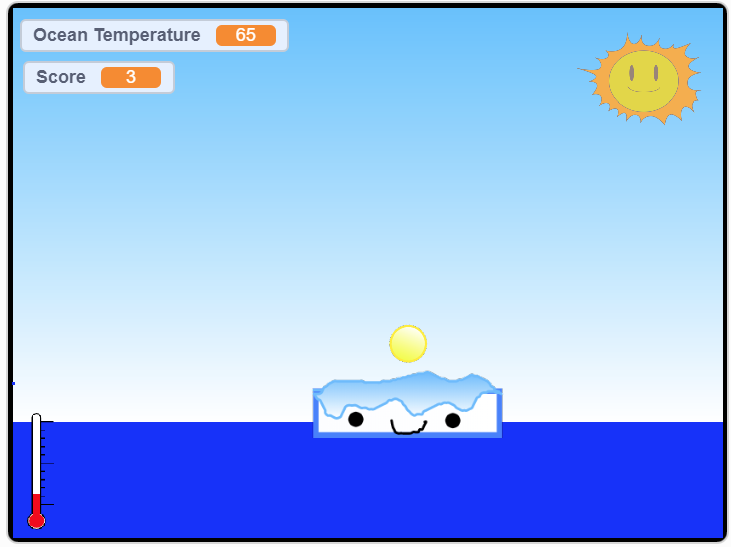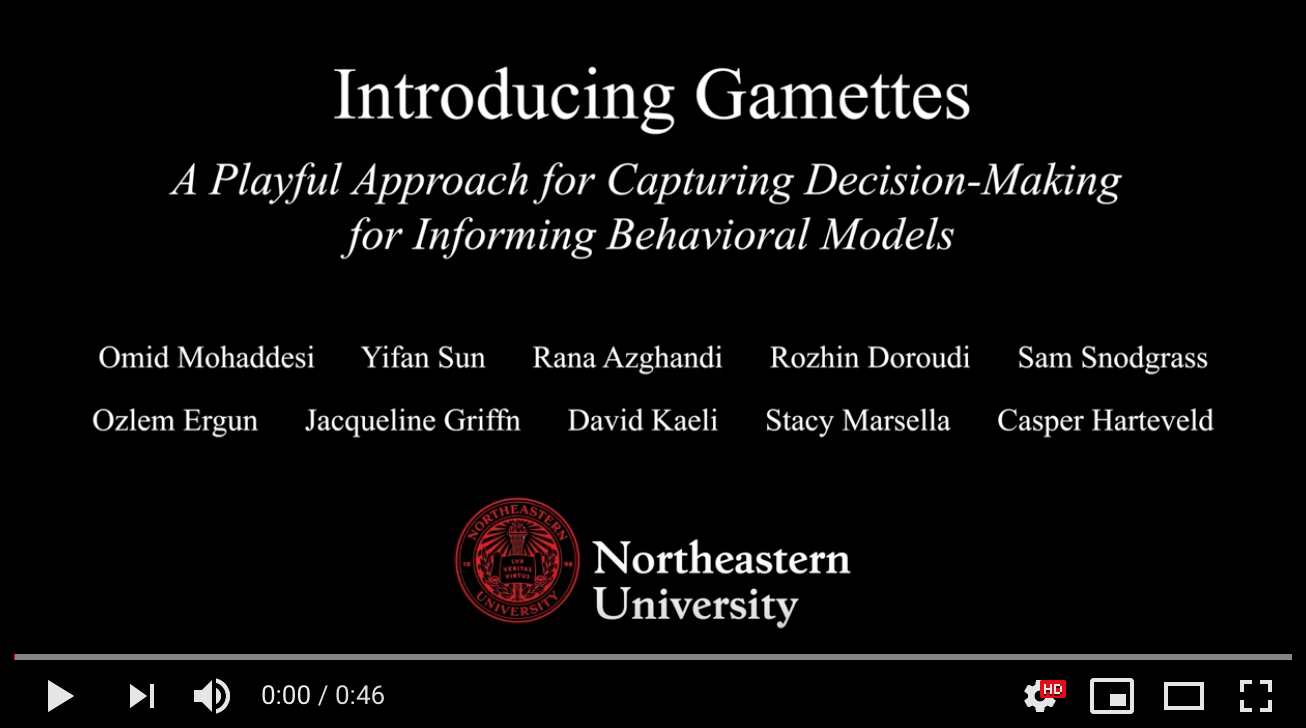The ACM CHI Conference on Human Factors in Computing Systems is the premier international conference of Human-Computer Interaction (HCI) – and this year, Northeastern University will have a strong presence. The conference, which was supposed to take place from April 25 – 30 in Honolulu (cancelled because of the COVID-19 pandemic), is a place where researchers and practitioners with highly diverse backgrounds gather from around the world to discuss the latest trends, findings, and ideas in HCI. The conference accepted multiple papers by the research group led by Casper Harteveld, Associate Professor of Art + Design; two of the papers were recognized with prestigious awards.
Papers that are accepted into CHI, which is a highly competitive process, are publications of original, mature, and complete research in the field of Human Computer Interaction (HCI). They all must score highly on originality, significance, validity, and presentation quality – and they are read and cited worldwide, and have a broad impact on the development of HCI theory, method, and practice.
Having a paper accepted at CHI is a great achievement for an HCI researcher…
“The conference is very competitive; with an acceptance rate of approximately 23% and thousands of submissions every year, at CHI, only the best work is considered for publication,” said Giovanni Maria Troiano, Postdoctoral Researcher at Northeastern and co-author on two of the papers. “Publishing at CHI is equivalent to publishing research at a high-impact journal. Furthermore, attending CHI is always highly inspiring for a researcher, given the high quality of the work researchers present there. Finally, presenting a paper at CHI is always an opportunity to spark interesting discussion within the community, as well as receive high-quality feedback from other researchers.”
The paper entitled Exploring How Game Genre in Student-Designed Games Influences Computational Thinking Development was recognized with an ACM CHI Best Paper Award, which honors exceptional papers published at the conference.

The authors (see end of article) explore how game genre impacts Computational Thinking (CT) development and programming routines in student-designed games. The research examines Scratch games designed by 8th-grade students using a metrics-based approach (i.e., Dr. Scratch) and finds that designing particular games (e.g., action, storytelling) impact CT and programming development (read full summary here). The work is a result of an ongoing collaboration between Northeastern and TERC, led by Gillian Puttick, with the support of the National Science Foundation (#1542954).

“The work provides insight into how game design, particularly game genre, impact the learning of computational thinking (CT) in K-12,” Giovanni continued. “The work analyses serious games designed by dyads of 8th-grade students (i.e., between 12 and 14 years old), as part of an innovative STEM+C curriculum, which is based on constructionist learning approaches, where students produce knowledge rather than being instructed to it. The work also provides pedagogical recommendations to teachers that use game design as the main learning tool for CT development, as well as explaining the need for mixing instructionist and constructionist approaches in game-based curricula….
To our knowledge, such contribution is unprecedented in CT and game-based learning literature.
The paper entitled Introducing Gamettes: A Playful Approach for Capturing Decision-Making for Informing Behavioral Models (full description here and authors listed at end of article) was recognized with an ACM CHI Honorable Mention Award. The work is a result from an ongoing interdisciplinary project between COE, Khoury, and CAMD led by Jacqueline Griffin about drug shortages, funded by the National Science Foundation (#1638302).

This paper proposes the use of Gamettes to extract rich data on human decision-making and help in improving the human behavioral aspects of models underlying agent-based simulations; it finds that that Gamettes are successful in capturing the expected behaviors and patterns in supply chain decisions. Learn more in this video (or click image below).

“The whole idea of using serious games to study human behavior and putting human in the loop of simulations is not new. The uniqueness of the method we proposed in this paper, however, is in the use of relatively short and simple games called Gamettes—a contraction of game with vignette—that are coupled with a simulation framework and are designed to depict a specific role and a slice of the simulation,” said Omid Mohaddesi, Ph.D. Candidate and Graduate Research Assistant at Northeastern and co-author on two of the papers. “We validated this methodology in the context of supply chain decisions, and I am really excited to present and disseminate our validated approach more widely at CHI 2020 conference, so that other researchers can start using and testing it in other decision contexts.”

The other two papers published at the conference are: And This, Kids, Is How I Met Your Mother”: Consumerist, Mundane, and Uncanny Futures with Sex Robots (description here) and LBW317: Learning from Gamettes: Imitating Human Behavior in Supply Chain Decisions Authors (full description here). In addition to these papers, Northeastern was also represented in the workshop papers area of the conference. The conference, which is considered the most prestigious in the field of human–computer interaction and is one of the top ranked conferences in computer science, is sponsored by major companies such as Facebook, Google, and Microsoft. We look forward to seeing the ideas that come out of it!
Note: Due to the COVID-19 outbreak, the CHI 2020 organizing committee decided to cancel the conference. The papers, however, will be published and available online.
Authors
Exploring How Game Genre in Student-Designed Games Influences Computational Thinking Development
Giovanni Maria Troiano, Northeastern University; Qinyu Chen, Northeastern University; Angela Vargas Alba, Universidad Rey Juan Carlos; Gregorio Robles, Universidad Rey Juan Carlos; Michael Cassidy, TERC; Eli Tucker-Raymond, TERC; Gillian Puttick, TERC; Gillian Smith, Worcester Polytechnic Institute (WPI); and Casper Harteveld, Northeastern University.
Introducing Gamettes: A Playful Approach for Capturing Decision-Making for Informing Behavioral Models
Omid Mohaddesi, Yifan Sun, Rana Azghandi, Rozhin Doroudi, Sam Snodgrass, Ozlem Ergun, Jacqueline Griffin, David Kaeli, Stacy Marcella, and Casper Harteveld. All authors are from Northeastern.
And This, Kids, Is How I Met Your Mother”: Consumerist, Mundane, and Uncanny Futures with Sex Robots
Giovanni Maria Troiano, Northeastern University; Matthew Wood, Newcastle University; and Casper Harteveld, Northeastern University.
LBW317: Learning from Gamettes: Imitating Human Behavior in Supply Chain Decisions Authors
Omid Mohaddesi, Tiago Machado, and Casper Harteveld. All authors are from Northeastern University.


